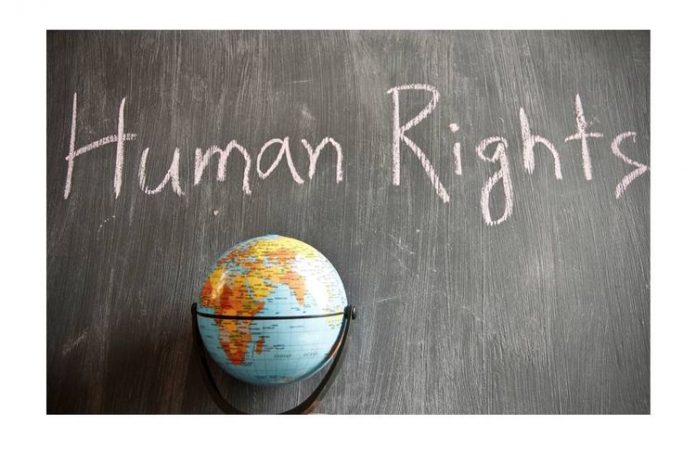This article has been written by Manya Dudeja, a student of University School of Law and Legal Studies, Guru Gobind Singh Indraprastha University. The article examines international law’s efficacy in securing the human rights of individuals.
Table of Contents
Introduction
“All human beings are born free and equal in dignity and rights. They are endowed with reason and conscience and should act towards one another in a spirit of brotherhood” – United Nations Charter, 1945
Priya is a nine-year-old, unaware and uncorrupt. She wonders why her family had to run away from their home, leaving everything behind, why are they hiding in an alien place, flouting the officers in uniform, trying to make ends meet every day.
Priya is not alone, millions of young children are victims of human rights violations, their right to knowledge, health and stability do not exist in this world at least.
The international community has often worn the veil of ignorance in the midst of severe human rights abuses. Despite the existence of international law governing human rights, its efficacy remains in question. It is a difficult time for human rights to survive.
“Since 1948, the Universal Human Rights Declaration has stood as a beacon and standard for a better world. Yet at a time of enormous global change, a refugee crisis bigger than that which accompanied the ending of the Second World War, the increasing twin threats of terrorism and extremism, and the appalling abuse and suffering of women and children in conflict and other situations, we need to renew and revitalize our efforts to realize the rights articulated in the Declaration.” – Gordon Brown
Provisions in the International law guarding human rights
- The foundation of International Human Rights law comes from the Universal Declaration on Human Rights adopted in 1948. It was accepted as a ‘common standard of achievement for all peoples and nations.’
- It was for the first time that basic civil, political, social-cultural rights were guaranteed to individuals by virtue of them being human. They had to be protected and respected for and by everyone.
- Various legal treaties and instruments have been framed over the years to protect the human rights of individuals all over the world. Many countries have signed and ratified these treaties.
International Bill of Human Rights
The following together constitute the International Bill of Human Rights:
- Universal Declaration of Human Rights (UDHR)
- International Covenant on Civil and Political Rights along with its two optional protocols
- International Covenant on Economic, Social and Cultural Rights
These organizations together, along with Non-governmental organizations work towards achieving international standards of human rights by encouraging countries and working with them to protect the human rights of individuals.
Are these provisions binding on countries?
These provisions are binding on the countries that have ratified the treaties. However, they keep defying them by inflicting human rights abuses on their population. At times such defiance can also attract sanctions from developed countries and can lead to an international boycott in rare cases.
Who monitors international human rights treaties?
The implementation of these treaties is taken care of by human rights treaty bodies. These committees include independent experts who work in monitoring the core international human rights treaties. It is the obligation of the treaty or State party to ensure that individuals are able to enjoy the rights set out in the treaty.
There are ten treaty bodies that have independent experts recognized in human rights law. They are elected for a term of four years by State parties. The term is renewable.
How does international law protect human rights?
- The international human rights law puts down duties and obligations that States are bound to obey.
- This includes States that become a part of the international human rights law by signing treaties and committing to respect, protect and fulfill human rights.
- Respect- This makes it necessary for the state to not interfere with or curtail the human rights of individuals.
- Protection- Under the obligation to protect, States are required to safeguard individuals from human rights abuses.
- Fulfill: The State is required to take positive action to make sure that individuals are able to enjoy basic human rights.
- Governments ratify international treaties and go on to frame domestic laws compatible with these treaties.
- The human rights protected under international law are thus guaranteed legal protection under domestic legal systems.
- In cases where domestic legal rights fail to safeguard the human rights of individuals, mechanisms have been put in place under international and regional law in order to ensure that human rights are respected, implemented and ensured.
Have Human Rights treaties failed?
|
S.No. |
Human Rights Treaties have failed |
Human Rights Treaties have not failed |
|
1. 2. 3.
|
International human rights law is hopelessly ambiguous and ambitious.
It is expensive to follow human rights treaties.
There have been waves of change without human rights treaties too.
|
It would be wrong to abandon human rights laws.
They are a tool to hold governments accountable.
Human Rights Treaties have made a difference.
|
Suggestions on Implementation
Strengthening the UN system on International Human Rights
It is pertinent that the aspirations expressed in the Universal Declaration of Human Rights are made a reality. The UDHR eloquently expresses all these rights, the following suggestions would try to liquidate their implementation.
-
Implementation of the mechanisms laid out by UN Human Rights Mechanisms
The UN system includes different kinds of Human Rights mechanisms. They are based on the UN Human Rights treaties or the UN-charter, which is a prominent one. It includes:
- Human Rights Council with its regime of special procedures
- Universal Periodic Review of the ten treaty bodies
The problems and priorities which are identified by the UN Human Rights mechanism are not given due importance and attention so as to command action from the international community and the UN. It is important that the UN enhances its support and recognises the findings, decisions and recommendations made.
2. Enhance the Office of the High Commissioner for Human Rights’ field presence
- OHCHR can be used as a tool to implement human rights at the country level. It can function as an entry point to integrate human rights approaches with the UN country teams, peace missions and strengthening civil society and national institutions.
- The OHCHR already is active in working on human rights in specific countries. While doing this it also works on enhancing the capacity of State institutions to address abuse and shortfalls.
- Even though the OHCHR has increased its presence in the field, its operations still do not fit the purpose.
- It is under-represented
- The field operations conducted by it are under-funded.
Less than 3 percent of the UN’s budget is allocated to OHCHR.
- The UN should increase the funding of OHCHR and also strengthen its field presence in countries and regionally This is important to strengthen human rights in countries as it would prevent violations and encourage peace.
- However, all of this can only be done if the State cooperates and works with international bodies.
3. Human Rights concerns should be raised in the UN Security Council
- “Arria-formula” is the process through which human rights issues are raised in the UN Security Council. It is an informal procedure and can only be done on the initiation of a member of the UN Security Council.
- Since abuse of human rights forms the root cause of conflicts, it is pertinent that the UN system interferes as this can resolve the disputes in the very beginning and can avert violence.
- Under Article 99, the Secretary-General is empowered to bring up any issue in the Security Council which threatens the maintenance of international peace and security. The Secretary-General should exercise this power whenever required and whenever recommended by the High Commissioner for Human Rights.
4. In cases of mass atrocities, the veto power of UN Security Council members should be limited
- Often, the P5’s veto has stopped the Security Council from taking action in cases of human rights violations, in turn curbing it from maintaining international peace and security.
- Such acts erode the credibility of the UN system. This was exemplified in the Council’s inability to safeguard civilians in Syria. These acts function as a green light for perpetrators of human rights abuses.
- In furtherance of this, France has proposed that the P5 give up their veto in cases of mass atrocities.
- Misuse of the veto to protect perpetrators of violence goes against the principles of the UN.
5. The utilisation of technology to enhance human rights accountability
- Technology and the internet can play a significant role in amplifying human rights accountability across the world.
- Online “Complaint Clearing House”: Through this platform, citizens can directly report cases of human rights abuses to the UN.
- Global Human Rights Wiki: This platform could be used to share data regarding the ongoing crisis. It should be readable and editable by human rights groups and organisations.
Role of NGOs
It is not just formal organisations that deal with human rights violations. There are a number of NGOs starving to work for individuals suffering abuse. They are civil society organisations at the international, national and regional levels which play a part in the implementation of human rights. They work by naming and shaming organisations and countries that curb the rights of their citizens, Organizations like the Human Rights Watch and Amnesty International are widely recognised by the Human Rights Council.
Conclusion
International law on human rights is not a perfect phenomenon, it is not faultless. However, it is the only hope that people doomed under war-like conditions are left with. It is the only institution they can look up to and can find shelter under.
Priya might not get justice soon but the hope of justice will live as long as international human rights live. We are humans beyond any boundaries and it is our responsibility to exert pressure in all our capacities and keep a check on human rights organisations all over.
References
- https://www.un.org/en/sections/universal-declaration/foundation-international-human-rights-law/index.html
- https://www.nytimes.com/roomfordebate/2014/12/28/have-human-rights-treaties-failed
- https://www.theguardian.com/news/2014/dec/04/-sp-case-against-human-rights
- https://blogs.openbookpublishers.com/human-rights-fit-for-the-21st-century/
- https://www.ohchr.org/en/professionalinterest/pages/internationallaw.aspx#:~:text=International%20human%20rights%20law%20lays,States%20are%20bound%20to%20respect.&text=The%20obligation%20to%20respect%20means,groups%20against%20human%20rights%20abuses.
- https://books.openedition.org/obp/3069?lang=en
LawSikho has created a telegram group for exchanging legal knowledge, referrals and various opportunities. You can click on this link and join:
 Serato DJ Crack 2025Serato DJ PRO Crack
Serato DJ Crack 2025Serato DJ PRO Crack











 Allow notifications
Allow notifications


